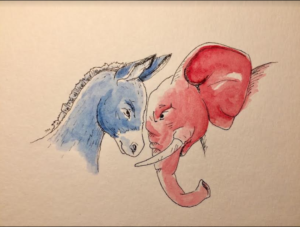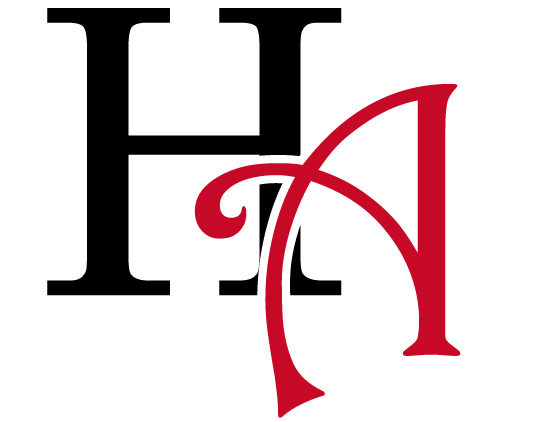By INDIA KRUG – I never used to pay attention to politics. I mostly regurgitated what I heard my parents and their friends complain about at parties. I knew that my mom’s students thought Obama was cool. I knew that Mitt Romney once put his dog on top of his car to drive to the beach– an act that I, a horrified nine-year-old, figured had lost Romney the election.
2016 was different. Everyone said so. It was like a fever dream: late-night talk show hosts shouting mockeries, NFL-esque play-by-plays of the debates, new controversies bobbing up like trash in the ocean.
“This is not normal!” the adults around me cried– but for someone who was becoming politically informed for the first time, I had nothing to compare the current status of our country to. I had no desire to see things return to “normal” because I honestly had no idea what normal was. What I did have was a desire to see things get better.
Junior Cian Williamson-Rea shares, “With the help of my ninth grade history teacher, Mr. Neil, I became more interested in politics and began reading articles and writing about them. I was particularly interested in politics at the time since Hillary Clinton was historically the first woman to be in the general election.”
According to the Pew Research Center, the partisan gap has more than doubled since 1994. I truly believe our generation can change that. And we can change that by putting the trust back in journalism. Currently, there is little to no overlap in the news sources conservatives and liberals consume. Each side clings to the reporters and commentators that criticize the opposing party.
Audiences sit at home cheering “We’re the ones who are right!” at their televisions, craving the endorphin rush that comes with laughing at others and having their own beliefs validated. But we, as the future of Americans, can do better.
Senior Anthony Bevevino states, “The number one thing Americans can do to unify is focus less on our divergent viewpoints and work on kindness.”
We can find the confidence to dispose of the mindset that we can only be this or that. We can inhabit every dimension of our humanity by rejecting the binary Republican versus Democrat mentality. Because we have let it define us as a country for too long. The idea that the elimination of the “wrong side” will solve the problem has not served us well.
Junior Harley Kessler comments, “I think that it’s important to be involved or at least have a good understanding of politics at our age because we have control of what happens in our future.”
Our generation needs to initiate a discussion without judgement. The art of conceding is lost– acknowledging that someone else’s viewpoint makes sense does not negate your own. Our generation is one of activists, and we can replace division with a sense of unity and purpose.
[Cartoon by Junior Talia Mastalski, a recreation of Thomas Nast’s original political symbols.]



